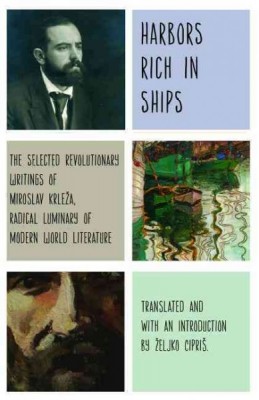| Harbors Rich with Ships: The Selected Revolutionary Writings of Miroslav Krleza, Radical Luminary of Modern World Literature Contributor(s): Krleza, Miroslav (Author), Cipris, Zeljko (Editor), Cipris, Zeljko (Translator) |
|
 |
ISBN: 1583676481 ISBN-13: 9781583676486 Publisher: Monthly Review Press OUR PRICE: $27.55 Product Type: Paperback - Other Formats Published: March 2017 |
| Additional Information |
| BISAC Categories: - Literary Collections | European - General - Political Science | Political Ideologies - Communism, Post-communism & Socialism |
| Dewey: 891.823 |
| LCCN: 2017009914 |
| Physical Information: 0.6" H x 5.9" W x 9.2" (0.70 lbs) 224 pages |
| Descriptions, Reviews, Etc. |
| Publisher Description: A bold new collection of the writings of Miroslav Krleza, in English for the first time |
Contributor Bio(s): Cipris, Zeljko: - Zeljko Cipris is a professor of Modern Languages and Literature at the University of the Pacific.Cipri, Eljko: - Zeljko Cipris is a professor of Modern Languages and Literature at the University of the Pacific. |